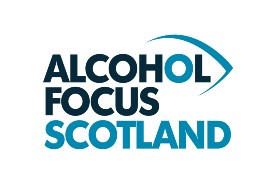Fiona shares her experience
Fiona shares her experience of recovery as a woman, and the impact that targeted marketing has had on her own recovery as well as society.
As a woman with nine years between now and my last drink, I have seen a number of changes and shifts in the public and personal experience of women and drinking culture.
I first sought help about my problematic relationship with alcohol when I was 17.
Due to my age and gender, I was not taken seriously at all.
It took well over a decade of traumatic and physically destructive drinking before I accessed a live-in facility where, after months, I stopped.
I do not hold with the idea that everyone’s 'rock bottom' need look like a gritty film - a person can and ought to define their own feelings and experiences as 'bad enough' to seek support to stop.
For me, I was unable to reduce my drinking to a safe level, or to find a point where I could guarantee my behaviour while drinking. Abstinence is my solution.
Societally, a number of things make this challenging. Advertising being a big one - 'prosecco o’clock', 'a cheeky glass of fizz', 'gin time!' 'Wine - mummy juice!'
These slogans and many more are on a huge amount of birthday cards, t-shirts, handbags, and, oddly, soft furnishings and wall mounts. All giving the notion that drinking is a treat, a needed reward, a vital social staple and not something to worry about because, elbow to ribs, everyone is doing it! Come on! Have a laugh! It’s just one naughty glass!
More and more the image of a woman with a drinking problem does not fit with the stereotype, of say, someone who can’t function, can’t parent, can’t wash, and can’t keep a job.
More and more, the woman with a drink issue is over-achieving in the work place, raising children, being responsible for the wellbeing of others, all the while hiding drinking, covering up hangovers, denying feelings of dread and fear.
I also see the age of women who are seeking out support and recovery getting younger. I appreciate this is a soft evidence, rather than statistic based evidence, but I believe both types are of use in providing understanding to the issue.
I have a lot of support, both now and in my early years of sobriety. I seek the council of like-minded individuals who have felt as I feel, who understand my experience, even if our life stories and backgrounds might be wildly different. I am part of a recovering community, a peer led community where there is no one in charge, where no one turns a profit. While medical intervention was indeed part of my journey, it is not the case for many.
For all the many toxic aspects of social media, there is a huge sub-community of young women accessing support and solidarity, advice and reassurance from perfect strangers online, in sobriety pages and networks on Instagram and Facebook. Many of these are women led and women occupied. These woman may very well be the kind I describe - high achieving, articulate, and young.
This is a world where huge faceless, multi-national companies make staggering profits from the tears of women in pain. Magazines, films, clothing stores, food brands and alcohol producers contribute to woman feeling ‘less than’, and in need of something to buy to feel better.
When women unite, be that physically in one place or remotely online, to listen without judgement and encourage without profit or motive for each other to put down the 'harmless glass of fizz', they embolden one another to become powerful.
They embolden one another to become powerful.
When I was unwell I was unable to find self-acceptance, self-worth and connection with others. The journey of sobriety, for me and the many others I have come to walk alongside, has been building my self-esteem in concert with my sisters. It is not enough for me to get well; I must pass on the good news that, together, we can and do recover. Recovery and a full and productive life without alcohol is not only possible, but truly beautiful, and worth fighting for.
Fiona Alexander
